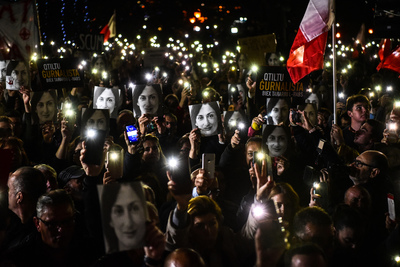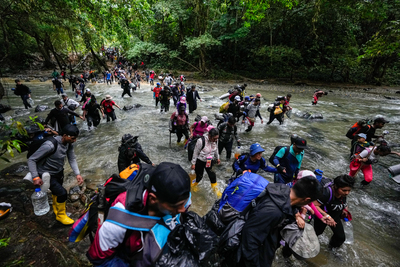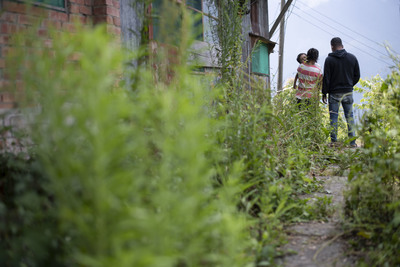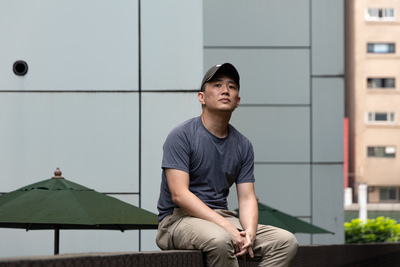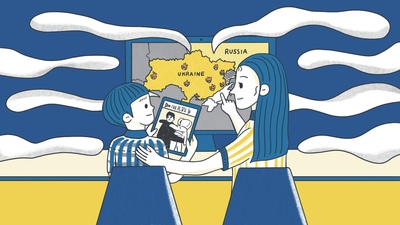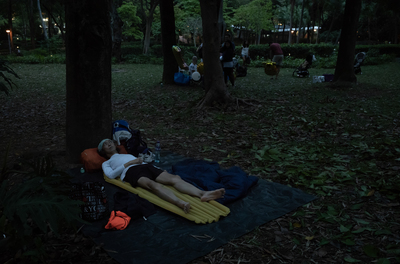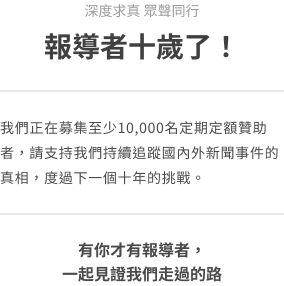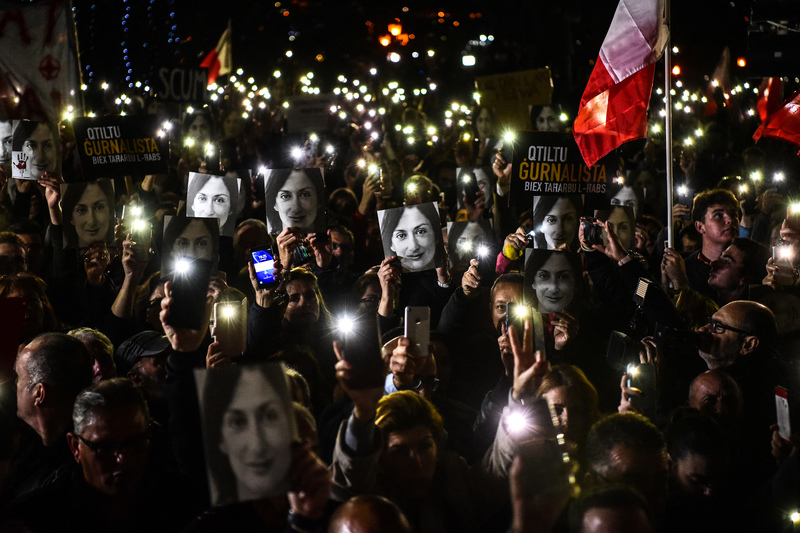
On October 16, 2017, Daphne Caruana Galizia, one of Europe's most renowned investigative journalists and a legendary figure in Maltese journalism, was tragically killed at the age of 53. She was assassinated when a bomb planted in her car exploded as she drove away from her home. This shocking car bomb murder sent ripples across the globe, exposing Malta's deep-rooted crony corruption and transnational political scandals, while also serving as a grim reminder of the severe threats facing press freedom worldwide.
Seven years later, many unanswered questions and unresolved mysteries remain surrounding Daphne's death. Her three sons, however, have risen to prominence in the international journalism community, becoming globally recognized investigative journalists and advocates for press freedom. They have carried forward their mother's mission, fighting relentlessly against Malta's entrenched corruption and the increasingly dire global press landscape.
Chris van Laak, a correspondent of The Reporter, interviewed Daphne's son, Paul Caruana Galizia. The in-depth conversation explores Malta's ongoing political and democratic shortcomings, examines the entrenched corruption and authoritarian influences within the country, and delves into the far-reaching implications these issues have on global affairs.
Daphne Caruana Galizia had a sense of foreboding in the last months of her life. Shortly before her gruesome murder, for example, she told a friend that she had “a sense of time running out.” When seeing off one of her three sons at the airport after his visit home, she seemed absent-minded and left without waving one last time. For a while she stopped writing her blog, one of the few non-negotiable routines she had. She told one of the other sons that “they're trying to fry me alive,” and gave him an unusually long hug.
It is rare that a journalist can single-handedly bring down a corrupt government. The downfall of then-Maltese prime minister Joseph Muscat and his administration in 2019/2020, however, is closely connected to the name of this single journalist who did not even live to see the day: Daphne, as she was usually called in Malta, a tiny island country in the Mediterranean Sea south of Italy where she was so well known that her last name was usually dropped.
At the time of her murder, on Oct. 16, 2017, she was a columnist at The Independent, one of the country's two main newspapers. She also wrote her own blog, which had more readers than The Independent and the Times of Malta combined. The focus of her reporting was government corruption; it was forceful, always true to her beliefs and didn't shy away from digging deeper when other journalists called it a day.
She looked back on a career of 30 years in journalism, which had begun humbly, but had eventually led to her becoming something like a one-woman opposition force that was more effective than any opposition in parliament to Muscat's government.
Lately, she had been involved in the initial reporting about the Panama Papers. Her revelation rang in the end of the Muscat administration by linking top politicians to a money graft scheme involving the country's electricity utility and secret offshore companies.
It is, allegedly, also what led to her murder. As of now, two people serve time in prison for it, but the final verdict about those who have organized the assassination has not been made yet—seven years after her death.
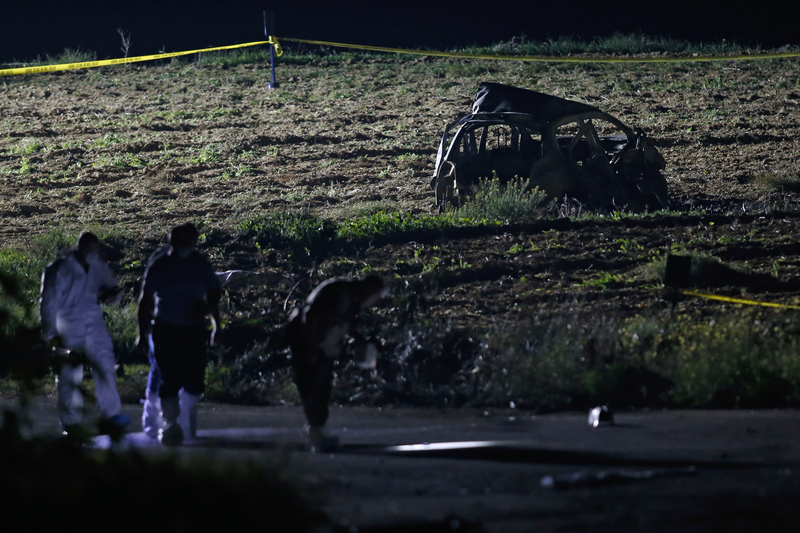
It wasn't her effort alone, though, that built overwhelming pressure on the government. Her family, especially her sons, played pivotal roles, too.
Andrew had already followed her into journalism. On the day of her murder, they had worked side-by-side at the kitchen table after they had, a few weeks earlier, received a leak of about 680,000 documents related to the graft scheme.
Matthew had embarked on a career in diplomacy, believing, just like his mother did, that Malta's integration into global institutions would ensure its path toward government accountability.
Paul, meanwhile, only became a journalist after his mother's death. He has since done something that Daphne had always wanted to do: Writing a book that highlights the full scope of government wrongdoing in Malta.
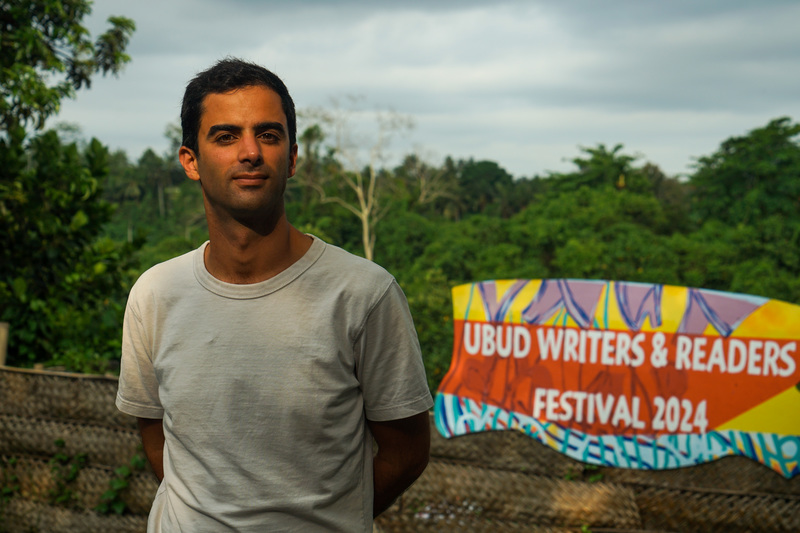
At the center of Paul Caruana Galizia's book, however, is the murder of his mother and the ensuing effort to ensure that her death will not be in vain.
When I spoke to him late last month during the Ubud Writers and Readers Festival in Bali, Indonesia, where he presented A Death in Malta – An assassination and a family's quest for justice, he made it clear that the effort continues. In the wake of Daphne's assassination, a broad coalition emerged seeking to carry on her legacy. It also seeks change to Malta's still deficient political institutions and democratic culture.
I believe the countries that heal and overcome these traumas become more cohesive, healthier democracies.Paul Caruana Galizia
For now, however, Malta remains divided and its public polarized. Highly suspicious government schemes, many of which his mother had reported on, remain in place—for example a citizenship-for-sale scheme attracting Russian oligarchs and Chinese billionaire fraudsters, as well as large-scale privatization projects in sectors such as healthcare or energy that will likely continue draining Malta's state coffers for decades to come.
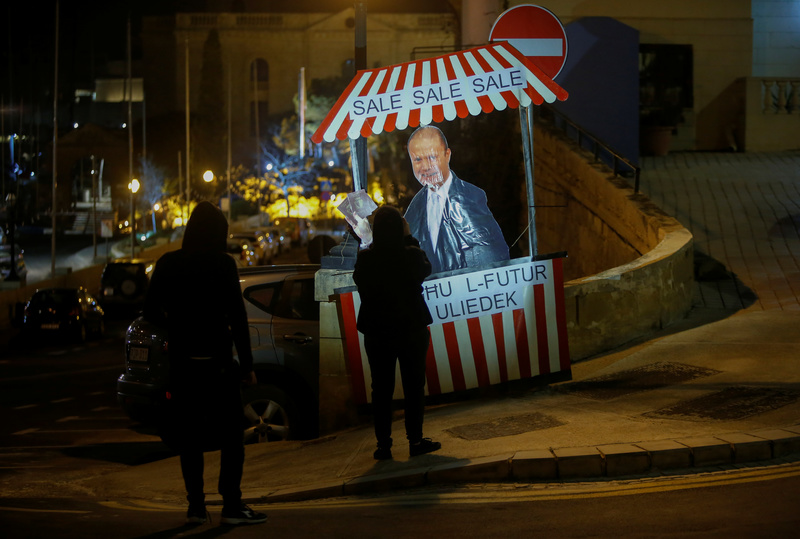
In his book, Paul Caruana Galizia describes a political culture that, until recently at least, took little issue with government malpractice.
Malta, which is about the size of Taipei City and has about 540,000 inhabitants, was a British colony until 1964. Its location had given it some strategic importance in wartime, but it otherwise feels more like a small town—a small town where political murder occurs occasionally, and where the government could seek shady alliances with the Eastern Bloc during the cold war and nationalize the banking sector virtually overnight.
Paul describes in his book that everyone knows everyone else in Malta, which allows its political class to make informal deals of far-reaching consequences.
Until this day, there's no real bulwark against such malpractice. The legal system left by the British might have suited a military outpost, but not a modern country. The constitution gives disproportionate power to the executive branch, and not enough oversight power to anyone else.
For most of Malta's modern history, there were three major institutions that, as Paul describes it, “crowded out civil society”—the Catholic Church, the Nationalist Party and the Labour Party. It remains a “two-party state” in which the latter two take turns in government without ever initiating the change Malta needs.
When his mother started off as a journalist in the late 1980s, the press, too, hardly played the role it should play in a democratic society—and she made it her mission to change that. Daphne was the first journalist in the country whose columns, then in the Times of Malta, carried a byline, something other journalists refrained from doing at the time, just as they did from writing anything that could be seen as rocking the boat too much.
Over the next decades, her reporting on links between the government and Malta's criminal underworld made her the face of a new, fearless journalism in the country, and the thorn in the side of the powerful.
She was critical of both parties and their supporters, even at times when the government did the right thing in her opinion, for example when Malta joined the EU in 2004 under a Nationalist Party government.
Daphne placed great hope in Malta's European integration. She believed European oversight would end, once and for all, how both parties ruled the country without having to fear accountability. She believed it would guarantee that her then-teenage sons would live their lives in freedom.
When the traditionally Eurosceptic Labour Party regained the premiership in 2013, however, it turned out that European integration was a double-edged sword.
To Labour and its then-leader, Joseph Muscat, it was an opportunity to make Malta a gateway for unchecked foreign influence in the EU, including Chinese investment, which Daphne reported on as early as October 2013. The passport scheme, which grants a EU passport to anyone who's willing to pay about €632,000, as the official government website lists it, is in this respect only the tip of the iceberg.
To her, it was clear that the Muscat government was worse than the ones that preceded it. Muscat and his inner circle “were not tempted into corruption when they were already jaded in power, but actually got into power with the express purpose of being corrupt,” she wrote shortly before her death.
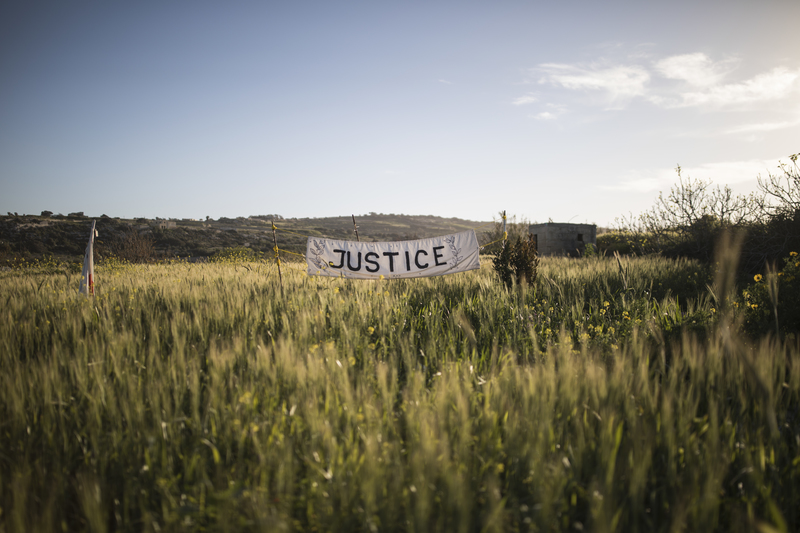
Paul's book describes the last hours of his mother's life, as well as what happened in its immediate aftermath, in a gut-wrenching manner. The murder marked the culmination of a years-long campaign of harassment and attacks, usually carried out by Labour supporters. Many attacks had been coordinated in secret, hidden Facebook groups in which top politicians were among their thousands of members.
After finishing to write a blog post at their kitchen table next to Matthew, whose work had earned him and his team a Pulitzer Prize that year, Daphne got into her car to drive to an appointment at her bank. An explosive device of a strength equivalent to 400g of TNT ignited soon after she had left the family home's driveway and blew her quite literally into pieces.
Roused by the sound of the explosion, Matthew ran outside and found a car that was unrecognizable as his mother's in a field near the house. Then he saw the blown-off license plate.
Initially he tried to put out flames to save his mother, but gave up when he realized that parts of her body were strewn across the area.
Minutes later in London, Paul received a phone call. It was Matthew. “Paul, there was a bomb in her car. I don't think she made it.”
What the family had feared all along had become reality.
It was an act of violence that shook Malta to its core—it was thus something that not even the Labour government could ignore.
Despite pressure from the public, the authorities were reluctant to investigate the full scope of the scheme behind her murder. While the two hitmen who carried out the bombing were soon arrested, charged and later sentenced to prison terms of 40 years each, it took two years to link the plot to the one who has since been charged with ordering it: Yorgen Fenech, one of Malta's richest businessmen.
The case against him is still pending, despite overwhelming evidence.
What also became clear over time—thanks to efforts by the Caruana Galizia family, an alliance of journalists, civil society groups and EU institutions that put pressure on Malta to investigate—was that Fenech was linked to members of Muscat's Cabinet not only through personal connections, but also through a network of secret shell companies in places as far afield as Panama and Dubai, through which money drained from the state coffers and Maltese taxpayers was allegedly funneled into their pockets.
Shortly before her death, Daphne had begun to connect the dots.
The full scope of corruption involving Maltese top politicians remains murky, but Muscat and others were in May this year charged with money laundering, fraud, bribery, conspiracy and corruption in public office, all in relation to a hospital privatization scheme in 2015.
Muscat's successor and Labour Party ally, incumbent Prime Minister Robert Abela, has largely remained mum about the charges, but has warned the judiciary not to engage in “political terrorism” against Labour.
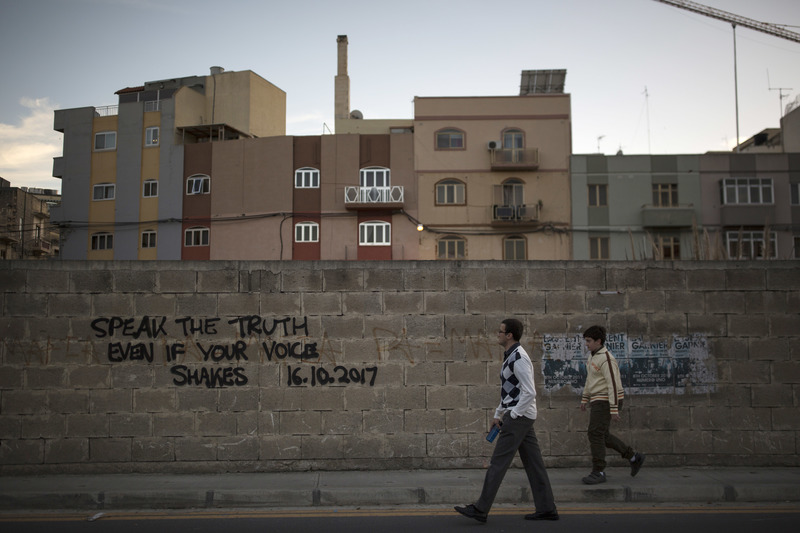
“Journalists working in Malta are still facing the same pressure,” Paul told me, for example as those in power can file unrestricted libel suits against reporters, not necessarily with the aim to win the cases in court, but simply to keep them busy attending court appointments. They can also order their assets frozen.
At the time of her murder, Daphne was facing over 40 such suits. The bank appointment for which she never arrived was about an account that had been ordered frozen by the country's economics minister. It was part of a libel suit that he himself had filed against Daphne.
Under Maltese law, the suits could continue after her death, and it is of little consolation to her sons that the family only lost one of them. The damages were as little as €400.
Malta still has far-reaching civil libel laws that continue to stifle dissent. Only “criminal libel” is no longer in the books, as change creeps forward painfully slowly.
“The governing party has been poor at implementing all the changes we need and very dismissive of policy ideas that would really benefit the country,” Paul said.
Daphne's three sons and her husband, the lawyer Peter Caruana Galizia, co-founded the Daphne Caruana Galizia Foundation a year after the murder to coordinate their continuing efforts. It presses for reform in Malta and other places where journalists face threats and persecution. It is part of a network of like-minded organizations, such as Reporter Without Borders, which last month commemorated the seventh anniversary of Daphne’s death, highlighting threats to journalists worldwide.
Matthew acts as the foundation's director, but the whole family remains involved in the effort to keep Daphne's legacy alive.
Paul's role resembles that of his mother most closely. He initially became a reporter and editor at Tortoise Media, a London-based outlet specializing in in-depth journalism, where he reported on global corruption and “hostile state activity” in the UK.
“There are many small island states, for example in the Caribbean, that offer the infrastructure for corrupt shell companies and offshore banks,” he said. “The demand for the services they provide comes from countries like the US, the UK, or other European countries. The smaller countries are responding to their demand. And then there's the involvement of bigger, corrupt countries such as Russia or China. They have a great responsibility in my opinion.”
In his work in the UK, he might not face the same risk that his mother had faced, but, as he was once informed in a briefing with security officials during his reporting on Iranian hostile state activity in the UK, he should not “stand at the edge of a train platform.”
“That was very reassuring,” he said jokingly during a panel at the festival where he presented his book in Bali. Then he turned more serious. “That autocratic reach is disturbing,” he said.
(To read Chinese version of this article, please click: 汽車炸彈殺不死我母親的調查記者魂:一個馬爾他家庭的真相之路)
深度求真 眾聲同行
獨立的精神,是自由思想的條件。獨立的媒體,才能守護公共領域,讓自由的討論和真相浮現。
在艱困的媒體環境,《報導者》堅持以非營利組織的模式投入公共領域的調查與深度報導。我們透過讀者的贊助支持來營運,不仰賴商業廣告置入,在獨立自主的前提下,穿梭在各項重要公共議題中。
今年是《報導者》成立十週年,請支持我們持續追蹤國內外新聞事件的真相,度過下一個十年的挑戰。

